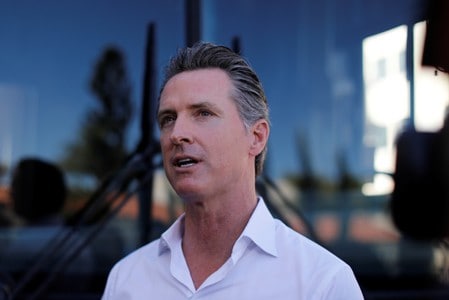By Sharon Bernstein
(Reuters) – Hours into his new job, California Governor Gavin Newsom signed an executive order on Monday that could dramatically reshape the way prescription drugs are paid for and acquired in the most populous U.S. state.
The order, along with another naming the state’s first-ever surgeon general, marks a fast start for a governor who has vowed to combat inequity and position California as a counterweight to the conservative Trump administration in Washington.
Newsom took office on Monday in a campaign-style inauguration ceremony packed with supporters and media, and featuring nods to California’s multicultural heritage with music from an African-American church choir from the Los Angeles-area city of Compton and a Mexican folk style group dressed in colors of the California flag.
In his executive order, Newsom directed state officials to set up what he said would ultimately be the nation’s largest single-purchaser system for prescription drugs.
It directed California’s massive Medicaid system to negotiate prescription drug prices for all of its 13 million recipients, changing their benefits from a managed-care or HMO approach to one that allows the state to handle all the purchases.
Medicaid is the joint federal-state program that provides health insurance for the low income.
The state would create a list of drugs to be purchased in bulk or targeted for price negotiations.
The executive order also took the first steps to allow private companies and other governmental agencies to participate in the process of negotiating drug prices with pharmaceutical companies.
Newsom has hired numerous health-care advocates as aides and is expected to focus heavily on initiatives related to public health and health care as his administration moves forward.
Under a proposal expected to be released as part of the state’s budget plan later this week, Newsom will ask the legislature to allow all undocumented immigrant young adults under the age of 26 to participate in the state’s Medicaid plan.
The budget proposal will also contain a plan to increase the federal subsidy for participation in Affordable Care Act policies to families of four making as much as $150,000, and reinstate the mandate requiring people to purchase health care.
(Reporting by Sharon Bernstein; Editing by Leslie Adler)


